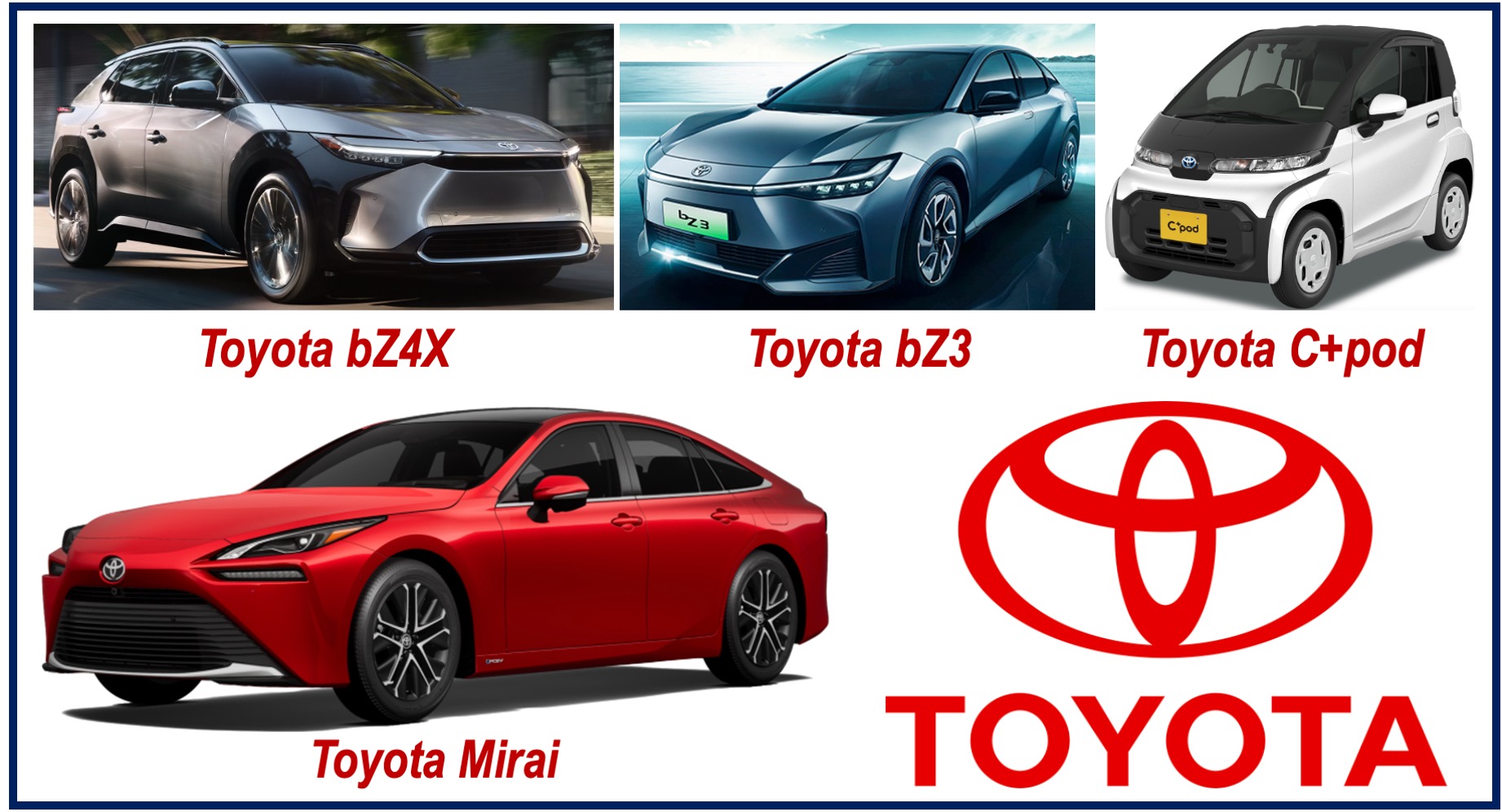Toyota Motor Corporation, the world’s largest auto manufacturer, has cut its 2026 electric vehicle (EV) production plan by one third, according to Nikkei Asia.
The automaker, which is based in Toyota City, Aichi, Japan, is one of several vehicle manufacturers that has slashed its EV production plans as global sales of electric vehicles lose steam.
In a statement, Toyota said that there would be no change in its plan to manufacture 1.5 million EVs annually by 2026 and 3.5 million by the end of this decade. It also added that these figures were benchmarks for its shareholders and not targets.

Toyota Plan Still Ambitious
Toyota has focused significantly more on hybrid than fully electric development compared to many of its global competitors. Last year, it sold only around 104,000 electric vehicles, making its goal of producing 1 million EVs per year an ambitious target.
-
Volvo
Volvo Car AB, a Swedish multinational luxury vehicle manufacturer, has dropped its plan to go fully electric by 2030. The company now expects to continue selling hybrid vehicles at the end of this decade.
-
General Motors
In July this year, Mary Barra, General Motors CEO, said that her company would not be able to meet its target of producing one million EVs at the end of 2025.
-
Ford
Also in July this year, Ford Motor Company ditched its plan to sell only EVs in Europe by 2030. The company described 2030 as “too ambitious.”
In an interview with Autocar, Marin Gjaja, COO of Ford’s Model E electrification division, said:
“I don’t think we can go all in on anything until our customers decide they’re all in, and that’s progressing at different rates around the world.”
According to 24/7 Wall St, Ford had high expectations for its EV sales. However, it has struggled to generate interest in the Mustang Mach-E, its electric crossover. In fact, the company has lost more than $100,000 on every EV it sold this year.
-
Many Companies Changing Plans
These companies have adjusted their strategies regarding EVs by either delaying their transition to fully electric vehicles or lowering their targets: Toyota, Ford, General Motors, Volvo, Volkswagen, Mercedes-Benz, Porsche, Renault, Stellantis, Bentley, and Aston Martin.
Demand for EVs
Earlier in the summer, the Institute for Energy Research said the following regarding the market for EVs:
“There has been a slowdown in the EV market’s growth, as early adopters have gotten their electric vehicles, and other consumers are wary over their high cost and lack of charging stations. In fact, those same concerns and their own experience are leading many existing EV owners to question whether to buy another.”
People chose to buy an electric car for many possible reasons. The most common ones are:
- Environmental Concerns: Reduce carbon emissions and air pollution.
- Lower Fuel Costs: Electricity is cheaper than gasoline.
- Government Incentives: Tax credits and rebates for EV purchases.
- Lower Maintenance: Fewer moving parts mean less maintenance.
- Smoother Driving Experience: Quiet operation and instant torque.
- Access to Clean Energy: Charge using renewable energy like solar.
- Future-Proof Technology: Stay ahead as regulations favor EVs.
- Reduced Oil Dependence: Support energy independence.
- Improved Charging Infrastructure: Easier access to charging stations.
Some countries’ governments, like Germany’s, have stopped providing incentives, which has affected demand for EVs. Germany, as the largest car market in Europe, plays a key role in Toyota’s European strategy, especially as the company tries to focus on electrified vehicle sales.
